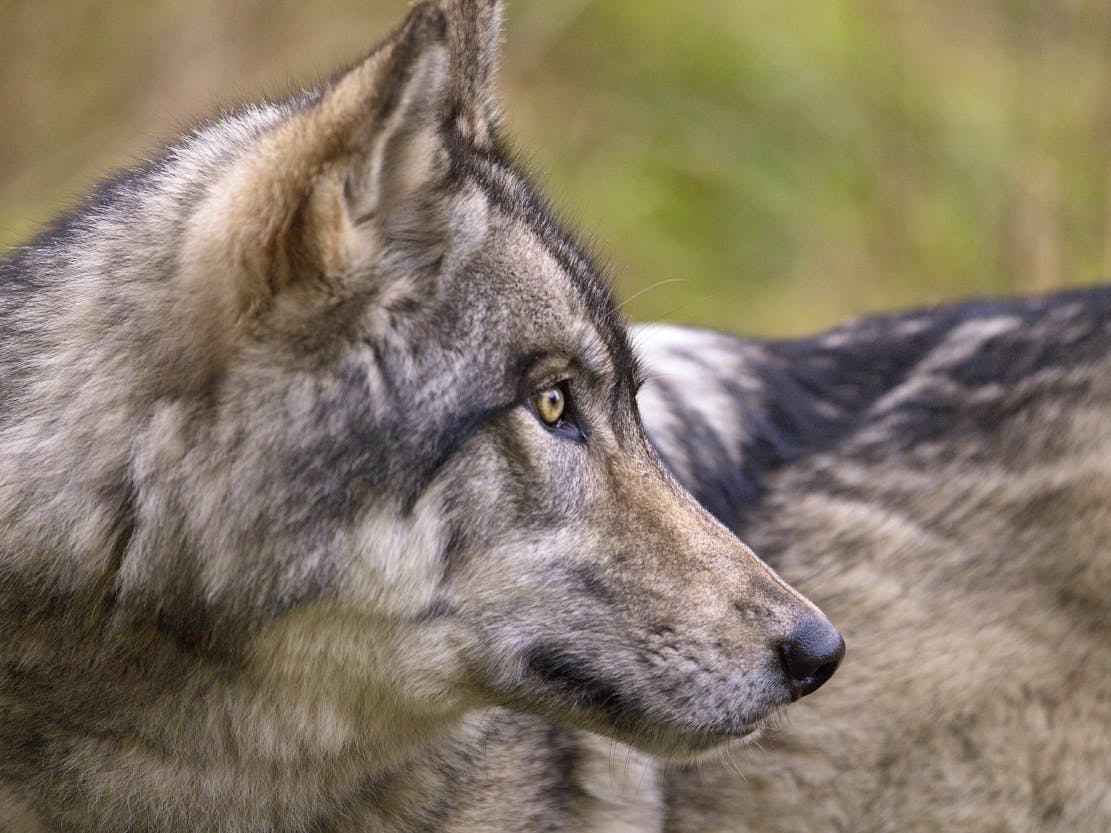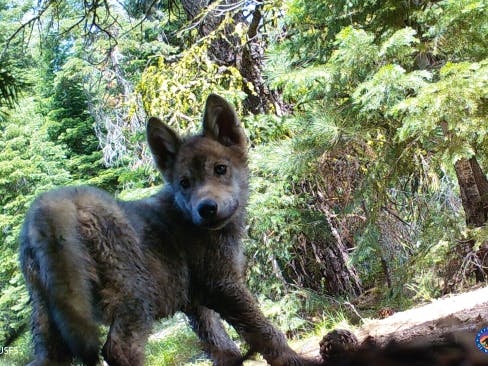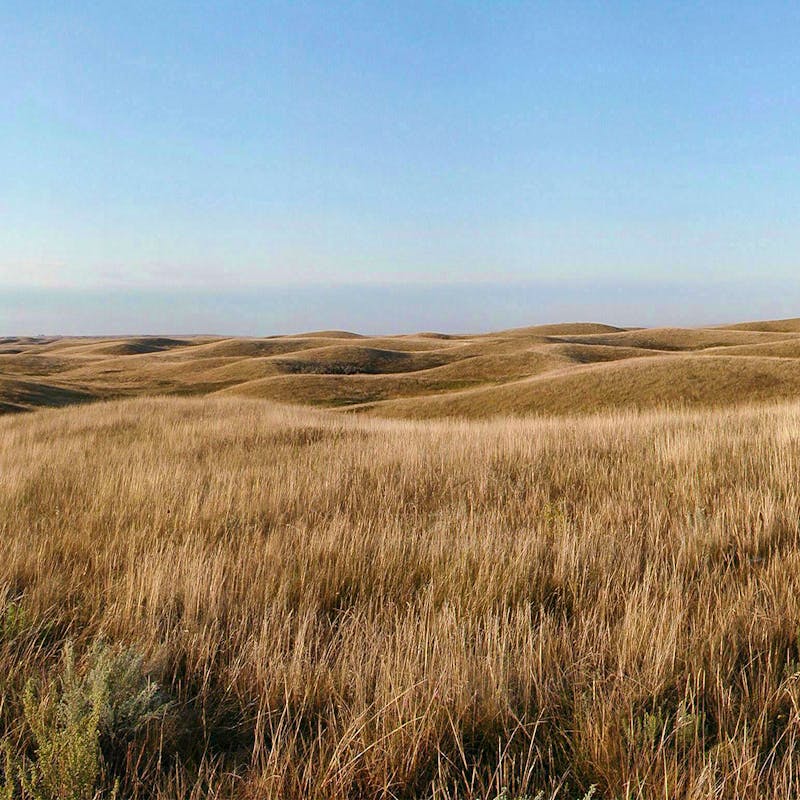Gray wolves once swept across Colorado as an integral native carnivore.
By the 1940s, wolves were extirpated from the southern Rockies to increase elk populations which had dwindled to the hundreds after unregulated hunting. While reports of lone wolves wandering in and out of Colorado began to surface in the early 2000s, it wasn’t until 2020 that Colorado Parks and Wildlife announced the presence of a wolf pack in the state for the first time in 80 years.
However, half of the pack was killed on the Wyoming side of the border only a few months later, and whether the remaining members are still alive or in the state is unknown.
The following year, two lone wolves in the North Park basin formed a breeding pair and produced the first fully documented litter of wolves born in the state since the 1930s, but once again, three of the pups were killed in Wyoming later that year.
While two wolves are known to still be present, several members of the North Park pack are still unaccounted for—bringing Colorado’s wolf count to two.
These recent incidents underscore the challenges wolves face in forming viable populations and why a thoughtful management plan backed by Coloradans is needed. Restoring wolves to Colorado will not only bring biodiversity to the iconic landscapes of the southern Rockies, but it will reconnect wolf populations from Mexico to the Arctic—a historic environmental achievement.
Wolves on the Ballot
In an unprecedented move during the 2020 election, Colorado voters passed Proposition 114, which mandates Colorado Parks and Wildlife to restore a self-sustaining gray wolf population by:
- developing a plan to reintroduce wolves by the end of 2023
- assisting ranchers with wolf-livestock conflicts
- fairly compensating livestock producers for losses caused by wolves
Defenders served on the Stakeholder Advisory Group appointed by the agency and participated in the numerous public engagement opportunities since the 2020 election. In May 2023, the Colorado Parks and Wildlife Commission voted to finalize the state’s wolf management plan and Defenders continues to work hard to ensure that the plan is implemented and improved with the best available science and priority for minimizing wolf-livestock interactions.
What Defenders is Doing
Defenders works closely with a wide variety of partners—state fish and wildlife agencies and commissions, elected officials, ranchers, recreationists, businesses, activists, and other conservation organizations—to advocate for policies and practices that will ensure continued wolf recovery.
We complement our policy work by working directly with communities sharing the landscape with wolves. Defenders seeks to engage new and diverse audiences in our field work, and we convene workshops with community partners to share information about wolf-livestock conflict prevention methods and facilitate meaningful conversations about coexistence. As requests for assistance increase, Defenders is answering the call by working on-the-ground with landowners to assess their needs, install, maintain, innovate, and fund a variety of conflict minimization techniques.
For more information, please contact RockiesRegion@defenders.org.
Publications
Blog Posts













